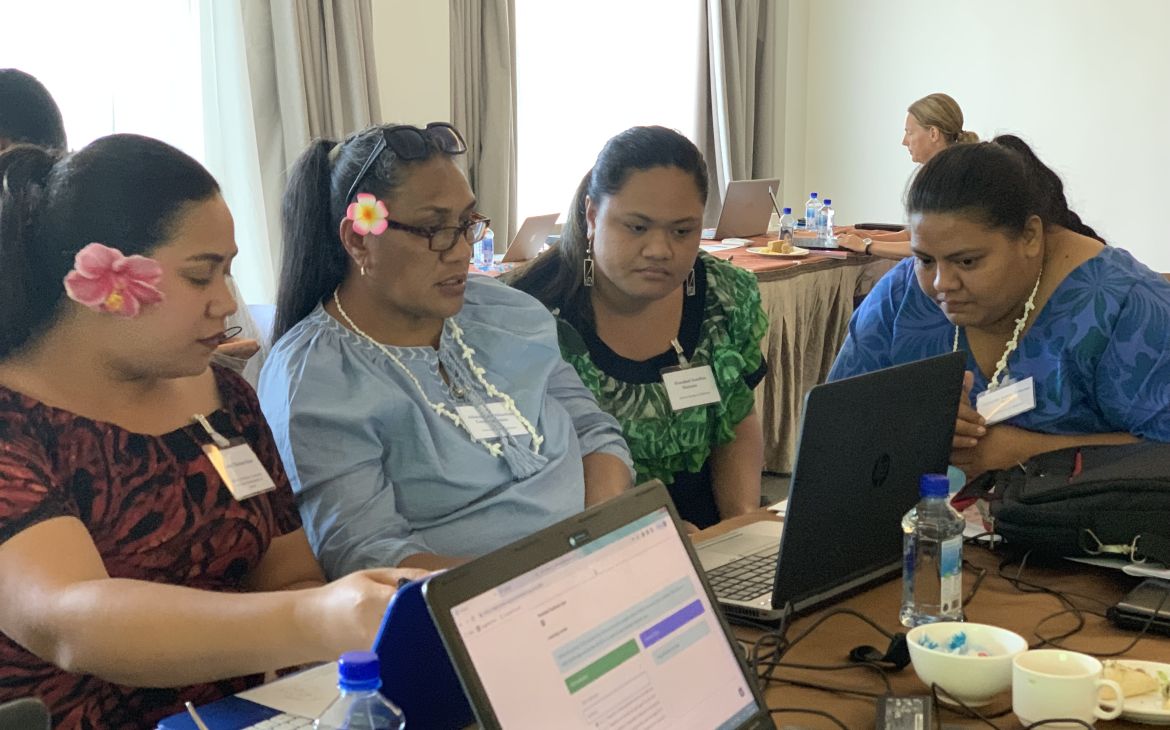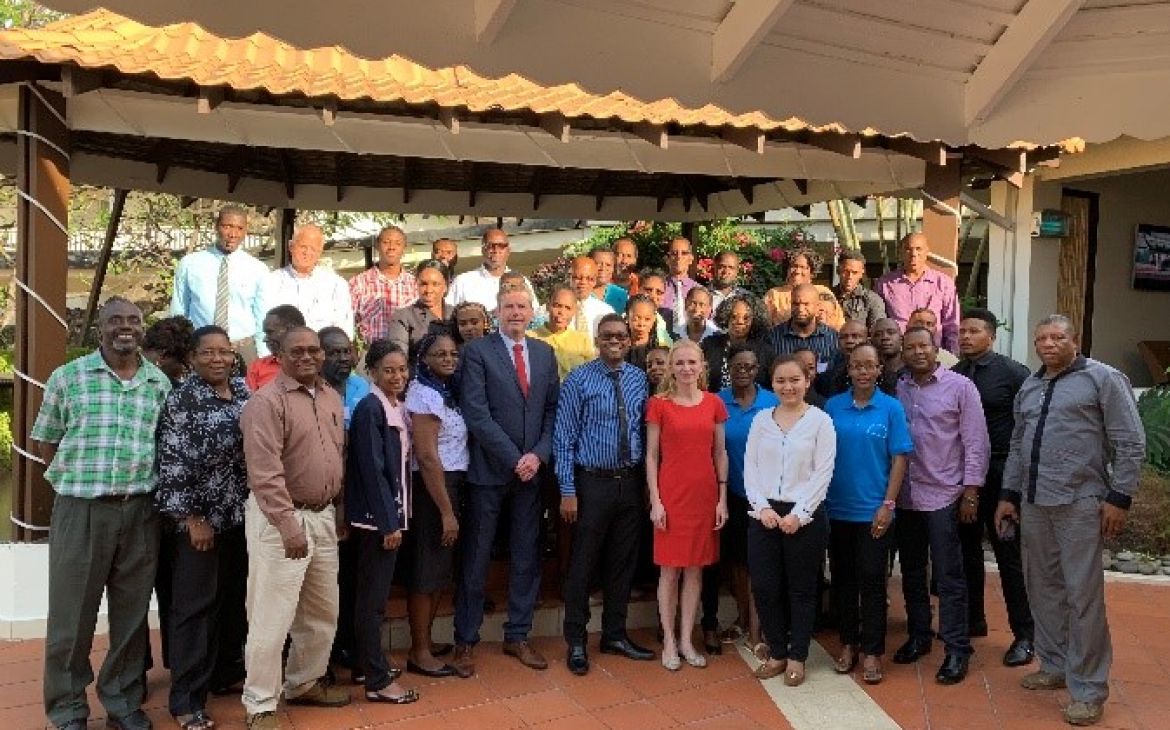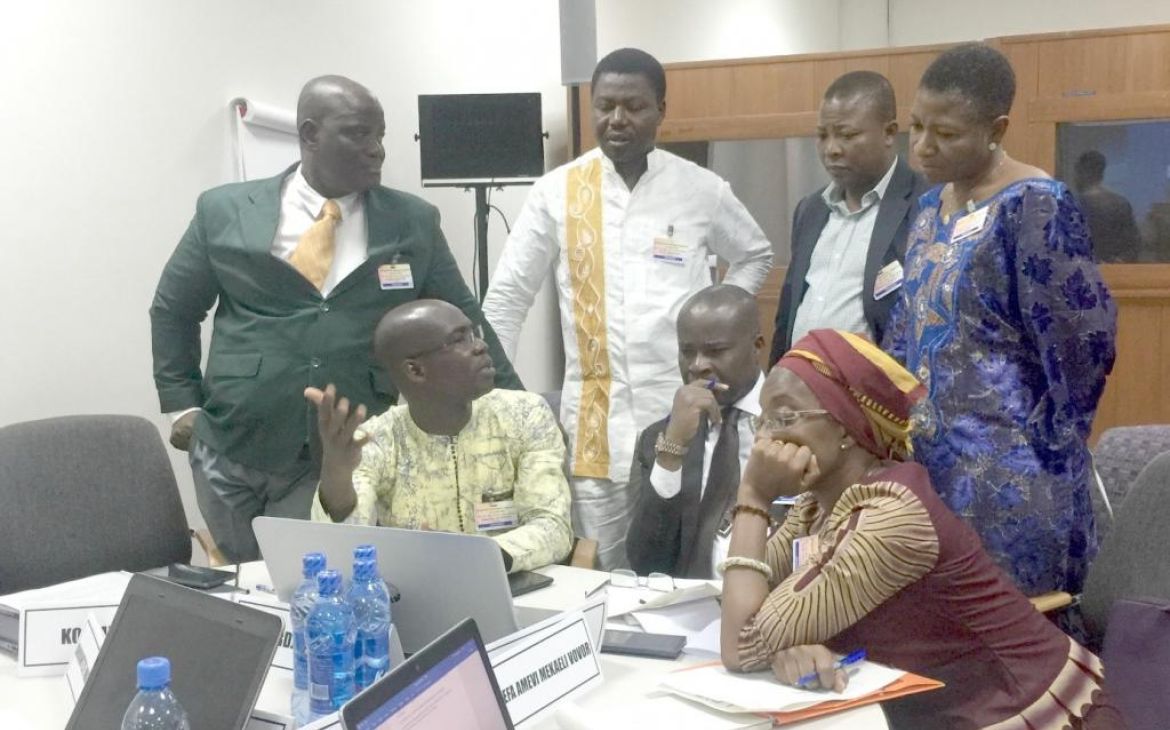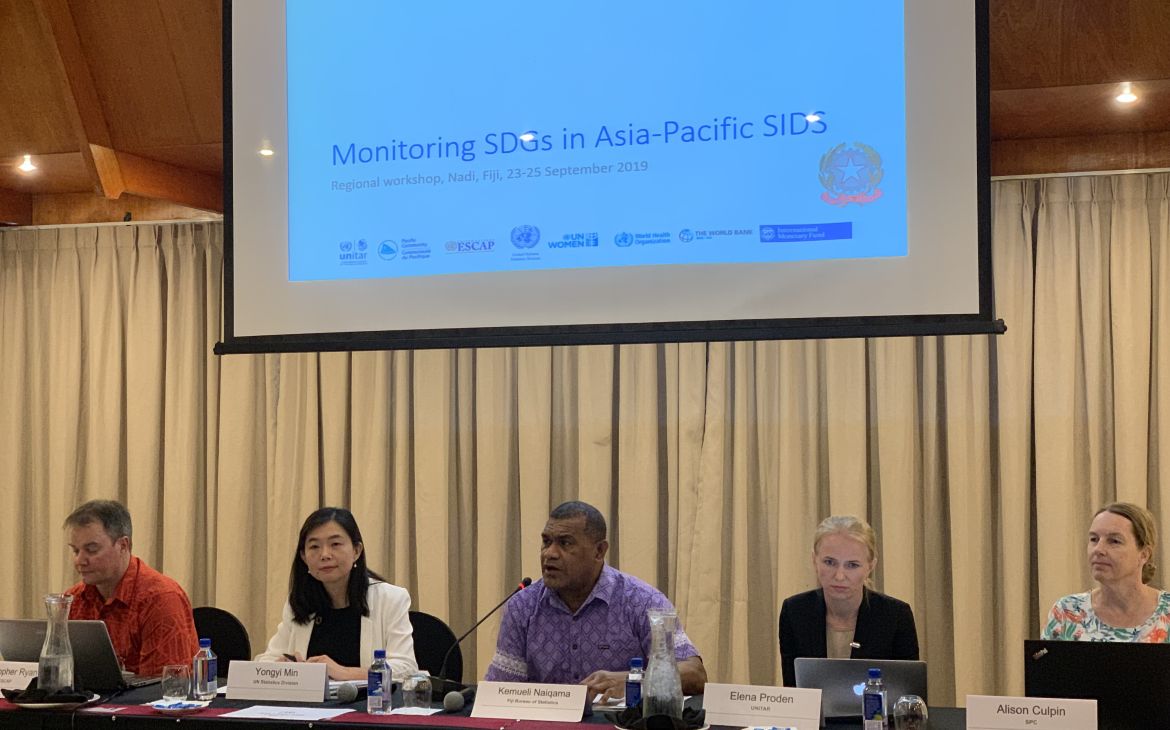In a world where more data are generated in one year than over decades before, its value to informing important policies and decisions aimed at the implementation of the Sustainable Development Goals (SDGs) is ever more important. The surge in data presents both significant opportunities for generating much needed evidence, as well as new challenges as the spread of fake news increasingly threatens the very foundations of our societies. Against this backdrop, UNITAR’s Strategic Implementation of the 2030 Agenda Unit (SI Agenda 2030) has teamed up with UN Statistics Division (UNSD) to support monitoring and effective use of data to achieve global goals.
The first products coming out of this partnership aimed to support better data planning for the SDGs and improve national data governance systems. A joint StaTact tool has already introduced to close to 30 countries, mostly Small Island Developing States (SIDS) and Least Developed Countries (LDCs). It is a web-based statistical action-planning tool (statact.unitar.org) that helps address pressing short-term measurement problems in support of monitoring the SDGs. Its main strengths are a collaborative environment for multi-stakeholder discussion and a problem-solving methodology that helps you set up a Working Group and take it through three key stages such as a problem statement, problem analysis, action plan, and an implementation interface. The end product is a realistic low-cost tactic action plan with assigned responsibilities, a timeline, and a budget. The implementation interface enables the Working Group to track in real-time progress on this plan. StaTact is typically coordinated by appointed focal points from National Statistical Offices who can create Working Groups as may be required and enable Group Leaders invite relevant stakeholders from Government or outside to collaborate on a solution for a data problem at hand. StaTact has been used by countries to address gaps in environmental data, data related to educational outcomes, gender-based violence (GBV), Gross Domestic Production (GDP) production, migration data, poverty measurement, among other.
The roll-out of this tool in the regions was implemented in close collaboration with UNECA, UNDP Regional Bureau for Africa, as well as the Pacific Community and ESCAP. Furthermore, a free massive open online course “Introduction to data governance for monitoring the SDGs” has been also developed drawing primarily on the forthcoming edition of the Handbook of Statistical Organization. The course provides a good introduction to the meaning and value of official statistics, various types of data sources, UN Fundamental Principles of Official Statistics (UN-FPOS), effective data planning and the importance of quality data partnerships among other. The course is open to everyone within and outside of NSOs.
Another important result of this fruitful collaboration was the development and delivery of a training programme on monitoring SDG indicators in the Asia-Pacific SIDS. UNITAR has once more teamed up with UNSD, the Pacific Community (SPC), UN Economic and Social Commission for Asia and the Pacific (ESCAP) as well as custodian agencies for the indicators of interest such as the World Bank (WB), World Health Organization (WHO), Pacific Technical Assistance Center of the International Monetary Fund (PFTAC-IMF) and UN Women to develop a training programme on selected Tier I and Tier II SDG indicators. The selection of the indicators was made based on the needs assessment conducted with the participation of National Statistical Offices. Among priorities identified by countries themselves were indicators related to poverty eradication, health, gender and finance. The needs were addressed through a blended training programme combining regional workshops and an online course. The coverage of the thematic components was complemented by an in-depth review of the cross-cutting aspects of monitoring such as the compilation of home-grown indicator frameworks, the importance of metadata and the opportunities, challenges related to the use of administrative data and non-traditional data sources and sex disaggregation across all goals and indicators. The massive open online course “Monitoring selected SDG indicators in Asia-Pacific SIDS” developed jointly with SPC, ESCAP, UNSD, WB, WHO, and PFTAC-IMF is currently available online.
In total, more than 704 persons from NSOs, other ministries and stakeholders, have been trained on data governance, planning, partnerships and monitoring progress on SDGs through these collaborative efforts.
The most recent product is a new massive open online course namely “Understanding data and statistics better – for more effective SDG decision-making” that aims to offer a double opportunity: 1) to help improve the understanding of how better data can help design more effective public policies and 2) to brush up on your core data skills. The course is intended for public officials in charge of SDG policies, as well as data producers and anyone interested to learn more about the role of data in public policy design. National Statistical Offices may also find it a useful resource in their work aimed at strengthening data skills and data demand from their countries’ decision-makers from across line ministries, as well as in their efforts to further the understanding of data producers from across the National Statistical System and beyond when it comes to data use and data demand. This course is developed in partnership with UNSD and UNECA drawing on and responding to the needs identified by the Working Group on Data Literacy of the Global Network of Institutes for Statistical Training (GIST).
UNITAR is an active member of the GIST network and has been contributing over the past two years to its two Working Groups, on data literacy and online learning. An example of impact-multiplying and cost-saving synergy, the GIST Working Group on online learning decided to leverage the UNSDG:Learn gateway set up by UNITAR and UNSSC in 2019 as an entry point for statistical training in support of the SDGs. A new, statistical page of UN SDG:Learn was launched by GIST during the 51st UN Statistical Commission in New York providing user-friendly search functions and access to all statistical training of GIST members and other statistical training institutes.
Partnerships have been critical to ensuring significant outreach and impact in UNITAR’s data work. The achieved results would not ha been possible without substantive contributions of UNSD, SPC, ESCAP, ECA, WB, WHO, UN Women, PFTAC-IMF as well as the valuable funding support of Governments of Switzerland, Italy, and Sweden.







